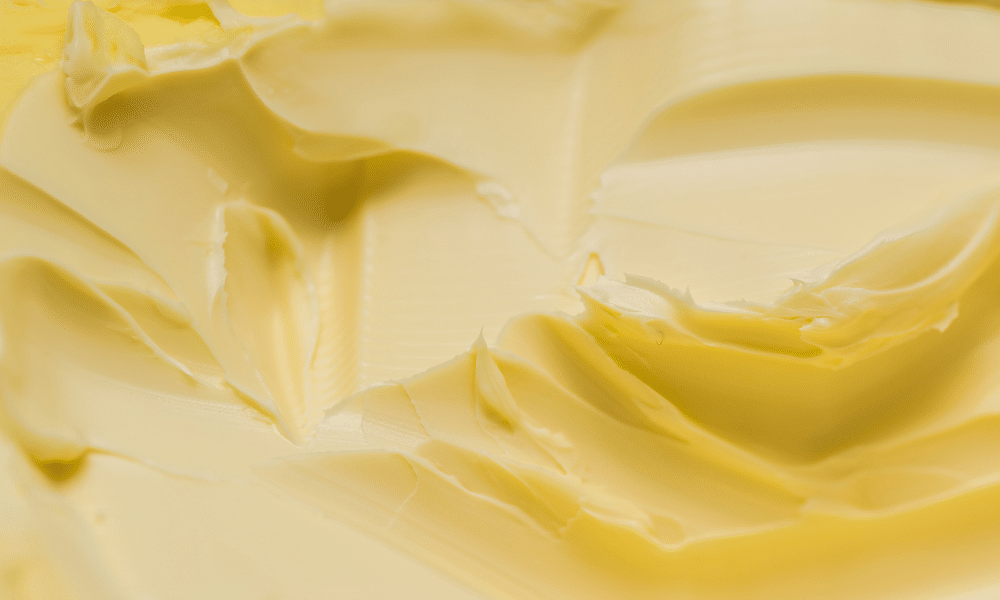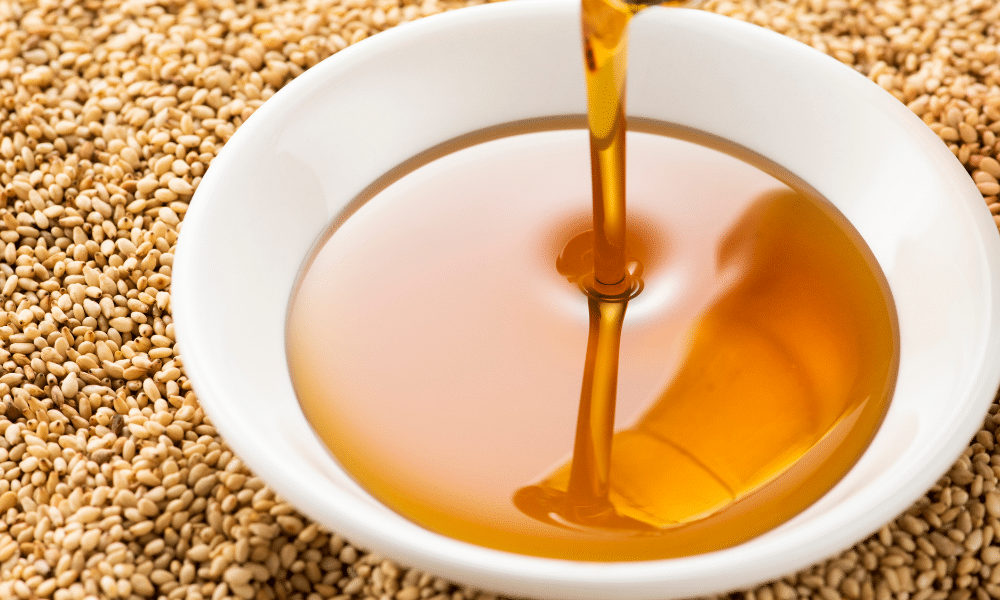Most Indian recipes will include ghee, and for good reason! Ghee is essentially a clear butter that can withstand very high cooking temperatures.
When regular butter is simmered, it separates easily into solids and a clear, golden fat. It is this fat that is left to solidify and form ghee.
You can buy ghee at your local Asian market or make it yourself. But if you do not have time to wait for butter to simmer and cool, what are some ghee alternatives you can use in your next Indian dish?
Our 5 Substitutes for Ghee
As a richer, cleaner version of butter, ghee tastes like butter but has a more complex flavour profile. Once simmered, the clear fat used to make ghee takes on a unique nutty taste
Here are our top 5 substitutes that best replicate ghee:
1) Vegetable Oil
There is a reason that authentic Indian restaurants favour vegetable oil as a quick ghee replacement on busy nights.
Though ghee is simple to make yourself, to buy it can be expensive. Especially in the west where Asian ingredients are still on their way to becoming mainstream. Every kitchen will have vegetable oil lying around and, if not, it is very cheap.
Vegetable oil has a very high cooking point of 232˚C so will not quickly burn.
Don’t Throw It Out!
A unique trait of vegetable oil is that it takes on the flavour of the last thing it was cooked in, creating a naturally seasoned oil. To make your dish pop, save your vegetable oil and use it in your next dish. You can reuse it up to 4 times, storing more and more flavour every time.

2) Unsalted Butter
Seeing as ghee is made from butter anyway, it is no surprise that unsalted butter makes a good ghee substitute. It is by far the most natural substitute for ghee and thus healthier.
You could make your own ghee from unsalted butter. But allowing the butter to cook and develop a deep brown colour will give it the same nutty tones as ghee.
Butter acts as a great base for creamy recipes like curry or soup as it is just fat – as is ghee.
Butter Will Burn Quickly
Butter is very quick to burn and can quickly ruin your dish if simmered for too long. If you don’t want to risk burning your butter, add a little bit of olive oil so the butter can develop a nuttiness without direct heat.

3) Canola Oil
Canola oil is comparable to vegetable oil but is less of a natural product. Though there may not be many chemicals added to the oil itself, the Brassica Napus crop it yields from is often genetically modified.
However, canola oil does have a very high smoking point and is harder to burn compared to most other oils. That is why it is best used in dishes that require longer cooking times.
Flavour It
With almost no flavour of its own, you will need to add your own to make the oil taste of anything.
This could work in your favour if you don’t want your ghee substitute to alter the dish. But if you do want a nutty flavour, you will have to add that separately.
4) Sesame Oil
Just like ghee, sesame oil has a strong, natural flavour.
It is one of the best alternatives for frying food and tends to be a healthier option for doing so than sunflower oil or vegetable oil.
Sesame oil comes in a few varieties such as toasted, cold-pressed and light. Whatever you have to hand will work as a ghee substitute.
Unrefined sesame oil has a lower smoking point than the refined version. But you can still heat it as high as 177˚C before it starts to burn.
Opt for Toasted Sesame Oil
For a flavour that most resembles ghee’s nutty notes, choose toasted sesame oil. During its production, the sesame seed would have been cooked to maximize its flavours. This results in a better, more flavoursome oil.

5) Sunflower Oil
Used both to cook with and as a dressing, sunflower oil is a versatile oil. It can cook to temperatures as high as 232˚C, making it perfect for frying and slow cooking.
No matter what recipes you are following, sunflower oil will be an effective substitute.
Though it is one of the unhealthiest oils you could use, it is very cheap, and you are likely to already have a bottle of sunflower oil in your pantry.
Releasing a mild nutty flavour once cooked, sunflower oil simply makes your food taste delicious.
Try Other Varieties
If you are trying to be health-conscious, there are healthier versions of sunflower oil. Linoleic sunflower oil is the most sold version, but you can also buy oil with high or medium levels of oleic. These will be healthier.
Other Substitutes for Ghee
We are all guilty of buying fancier oils and never using them. So, if you have any of the following at the back of your kitchen cupboards, you could also use them as replacements for ghee:
- Peanut Oil – There is no other oil that will outdo the nutty flavour of peanut oil. It is not the cheapest oil but has a high smoking point and is full of flavour
- Coconut Oil – Despite its very low smoking point, coconut oil is the best ghee replacement when cooking long, slow meals. Its flavours are very diverse and effective
- Olive Oil – If you have no other substitute available, use olive oil in moderation. It is very strong but is a good source of fat for creamier recipes.
Summary
Ghee can easily be made at home, but there are plenty of oils that carry the same deep, nutty flavours for when you need a quick fix solution.
For the best results, favour vegetable oil or plain unsalted butter.
